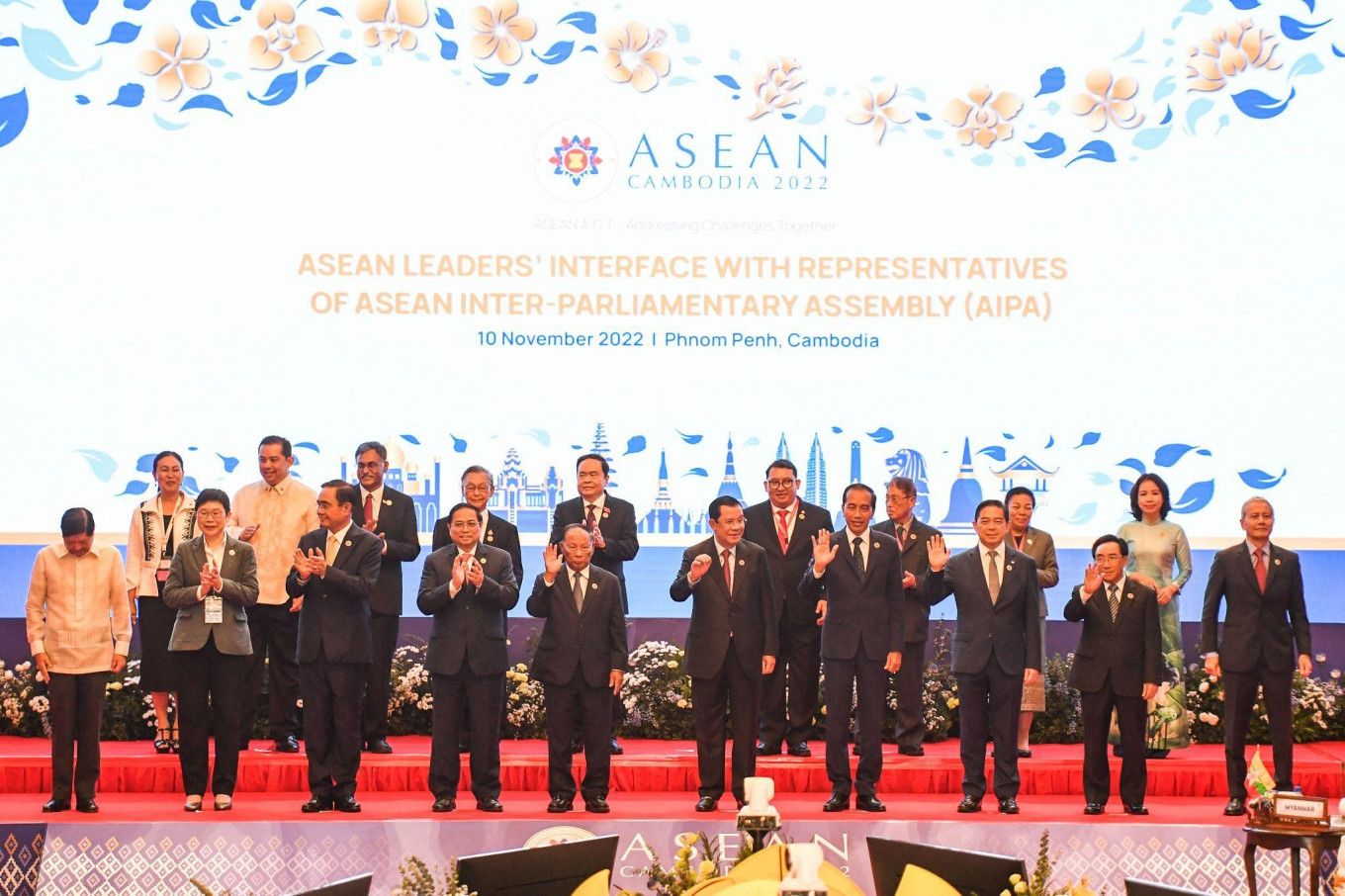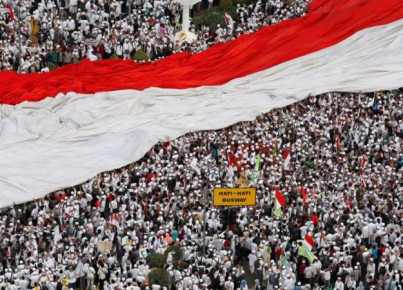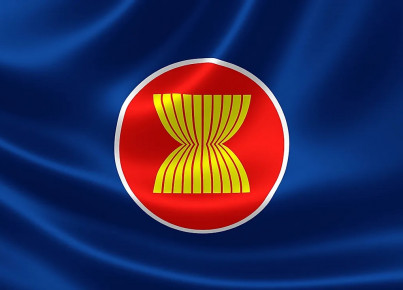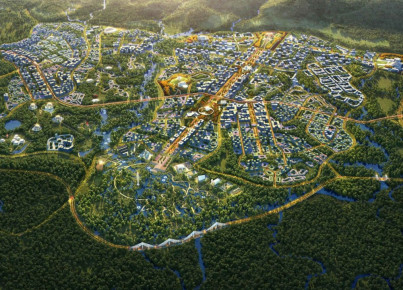In the course of 2022, Indonesia switched from the chairmanship of the G20 to that of ASEAN. Jakarta has proven to be a leader for the region and an indispensable interlocutor for all players involved in the Indo-Pacific
Jakarta has never been more central to the international scene. In 2022, diplomats from all over the world worked with the Indonesian government to prepare for the G20 Summit in Bali. The city is also the seat of the ASEAN Secretariat and, from the end of 2022 and for much of 2023, will Indonesia will hold the ASEAN chairmanship. The 2022-2023 period is perhaps an annus mirabilis for Jakarta, a city that will lose its capital status in the future, as work has already begun to move the country's government to the new city of Nusantara in East Borneo. However, work on the construction of the new capital is proceeding slowly and will still take years. The project is almost a symbol of Indonesia's ambitions in the region - and of some of its contradictions. The desire to move the centre of the country from Java to one of the most peripheral areas of the archipelago. The administrative difficulties of a gigantic project. The rising sea level that threatens the old capital and the rest of the region. A name evocative of a centuries-old leadership ambition.
Nusantara indeed comes from old Javanese and means 'outer islands'. Outer from the perspective of Java, the heart of the Majapahit Empire, whose influence extended, between the 13th and 15th centuries, over the entire Malay archipelago - and in fact the concept embraces not only the territories that today correspond to Indonesia. The term has been part of Indonesian nation-building since the famous Palapa oath taken by Gajah Mada, prime minister of Majapahit, in the 14th century. The prime minister swore to refrain from eating spicy food (palapa) until he had unified all of Nusantara under Javanese authority. The idea of unifying the archipelago and the Malay-speaking peoples under one leadership was essential to the birth of the Indonesian state during the 20th century. During the Sukarno regime, the young country had come to clash first with the Netherlands and then Malaysia in order to complete the unification process of the region – without fully succeeding. Already under Suharto, these ambitions changed in nature: Indonesia was to lead Nusantara through political influence and diplomacy, not by force. The country has followed this doctrine ever since. The Palapa oath also remains part of the national rhetoric: the first satellite launched by the Indonesians in 1976 was named Palapa to symbolise the whole country's commitment to the project.
This leadership role is in some ways natural given the size of the country. By population and economy, Indonesia is the largest member of the ASEAN bloc and the only state in the region that is also part of the G20. In 2022 Jakarta held the presidency of the summit, opening a three-year period in which the summit will always take place in the Global South: after Italy and Indonesia, the presidency will pass to India and then to Brazil. The government led by Joko Widodo did not have an easy task, given the growing tensions in international politics. Russia is a member of the G20 and the membership is divided between countries that boycott Moscow and those with a less confrontational line. Despite this disagreement, Widodo invited Ukrainian President Volodymyr Zelensky to address the Bali Summit. After the conclusion of the summit, Chinese President Xi Jinping stayed for a bilateral meeting with Widodo to strengthen cooperation in various areas - particularly in infrastructure development. On the political level, Jakarta expressed its adherence to the principle of non-interference in internal affairs which Beijing champions - a significant stance given that Indonesia is the largest Muslim-majority country in the world and that China receives criticism from abroad especially for its treatment of the Muslim minority in Xinjiang. At the same time, the Widodo administration does not intend to flatten itself on Chinese positions, nor on American ones, rejecting the logic of the 'new cold war'. This is a position shared by the vast majority of governments in ASEAN and emerging G20 economies. Again, the Indonesian strategy comes from afar - though not from a concept as old as palapa or Nusantara. One of the leaders of the independence movement and future prime minister Mohammad Hatta outlined the course of the new nation's foreign policy in a speech of 1948: mendayung antara dua karang, 'rowing between two rocks' - at the time, the US and USSR, to which we could perhaps add China today.
The annual chairmanship of ASEAN, assumed by Jakarta in November 2022, also brings with it no easy challenges. The Indonesian government believes that the organisation must address two essential issues: navigating the growing rivalry between the great powers and distributing the fruits of economic growth to the bloc's nearly 700 million citizens. The strategy outlined by the Widodo administration to solve these challenges consists of three points: implementing the ASEAN Charter - in other words, sharing certain essential political choices, such as the resolution of the ongoing crisis in Myanmar -, strengthening ASEAN as an institution and equipping it with more tools to achieve energy and food security, 'medical independence' and financial stability in the region. This strategy was summed up in the slogan: 'ASEAN matters: epicentrum for growth'. The Indonesian presidency indeed seems determined to strengthen the organisation and resolving within it the aforementioned political issues shaking the region, namely the Myanmar issue and the difficult balancing between the US and China. On the economic front, Indonesia will seek to implement the ASEAN Vision 2025, thus strengthening intra-regional trade and accelerating the technological transition. Another important dossier is the accession of Timor-Lester into the organisation. Expectations for the Indonesian presidency are high, given the country's leadership ambition and some historical precedents: two key processes for regional integration - the creation of an ASEAN Community on the EU model (2007) and the RCEP trade agreement (2020) - were launched during two rounds of Indonesian presidency, in 2003 and 2011 respectively. In the months to come, we may see whether Indonesia will again be able to hold the countries of Nusantara and the rest of Southeast Asia together - through politics, cooperation and leadership.






